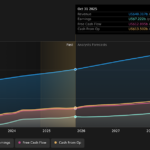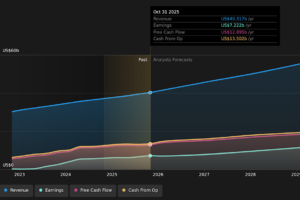
New retirees are like recent college graduates — they’re on their own after years of the same routine, and they have to find a new path to follow.
That’s how Nancy K. Schlossberg, an author and former counseling professor, sees it. And she should know, having written about the transition to retirement for decades and switching paths a few times herself in the last couple of decades. Now at 91, she’s starting an entirely new journey, acting as a consultant for Zoom programs about transitions in life.
She came across the six types of retirees, as she identifies them, when she herself retired more than 20 years ago. “I was a little bit at sea when I retired,” she said. “My field was transitions and counseling. I expected it to be easy and it was not.” After searching, she decided to write about retiring, adjusting to a new lifestyle and making the most of this next phase. She began interviewing retirees about the avenues they took to where they are today.
These are the six types of retirees, and what defines them:
See: You’re probably not ready to retire — psychologically
The Adventurer
This type of retiree ventures into the unknown, taking on a new job they’ve never done before.
One man she spoke with was the head of a research group for Congress in his 60s when he lost his job. He took a sailing trip and reflected, and remembered when his wife and child died years ago, massage therapy helped him heal. He came home and told his wife he planned to go into massage therapy. Another woman Schlossberg interviewed was a homemaker — the chief executive officer of a small family business, as she describes women who stay home to help raise a family — and in the middle of transitioning to retirement because her children were grown and moved out. She loved art museums, so she applied to be a docent.
Anyone can experiment with a new hobby or job based on their interests. One way to break into the field is to become an intern, Schlossberg said.
The Continuer
“Then there were people like me, who continued doing some of what I had done but in a modified way,” she said. Schlossberg was no longer a professor, or had a job with a salary, but she was walking a path she was familiar with — conducting interviews and research in a field she had been in for decades.
The Easy Glider
One man told her he was going to “sloth,” as in do nothing and see where life takes him. “An easy glider is a person who has no agenda, who just wakes up in the morning and asks ‘what should I do?’ and lets each day emerge,” Schlossberg said.
This path doesn’t work for everyone. Some people may feel stir crazy if they don’t have a new routine or purpose in retirement. But for others, especially those in physically demanding jobs, it’s a way to enjoy the little moments of the day with relief.
The Involved Spectator
This is the type of person who wants to be immersed in a field, although not make a full-time job of it. For example, a retired museum director who goes to art exhibits all the time, or a retired political consultant who is still very involved in political events, like voter registration. “They’re really involved, not as workers but as spectators,” Schlossberg said.
The Searcher
Almost everyone is a searcher at some point in their retirement, because they’re figuring out their next move. Someone may be a searcher as soon as they retire, or years after they initially retired, like Schlossberg did. She was a continuer — writing book after book — but then she realized she had enough of that. After some time to think about it, she decided she’d help organizations in other ways, such as develop Zoom programs about transitioning. “I had no idea I would be a searcher again, and then to find at my age a new variation of a theme,” she said. “Everybody is going to be a searcher.”
The Retreater
When she was first conducting interviews with retirees, she considered this to be the more depressing transition. Essentially, the retreater is a “couch potato,” she says, who “can’t figure out what to do.” But there are two types of retreaters — the one who is depressed in retirement because she has no purpose, and the one who is “retreating” until he can determine his next steps. “That’s like taking time out,” Schlossberg said.
Retirement is a time to explore. Figure out what interests you, what doesn’t, and how you want to spend your free time in this next phase. Test out a few different fields, such as volunteering or going to events and establishments that fit your interests. “It’s very similar to being a college graduate,” Schlossberg said. “There are some people who know exactly what they want to do and the same is true with retirees. But there are those who don’t know, and it is time to explore, to search, to just go wild.”
Schlossberg spoke with MarketWatch further about how people can determine what path best suits them, and how to make the most of this transition, even during a pandemic.
Some people use retirement as the time to expand on a career they would have wanted to pursue if they could decades before, when money was tight or there were more hurdles to accomplishing these goals. It’s important for retirees to estimate how much these activities might cost before pursuing them, just to ensure they are able to afford this new path as well as the necessities in retirement, such as housing, food, utilities and an emergency account. Their journey might even be lucrative, and bring in more income.
Also see: Look to your childhood to find a new purpose in life
“There’s no simple answer, there’s no formula for it,” Schlossberg said. “It gives you a feeling of possibility. I think that’s what people like to hear about the paths — because it is about possibility.”
MarketWatch: Do you have any advice for how people can overcome feeling overwhelmed by these paths, especially if they identify with more than one retiree archetype?
Schlossberg: Some people can be helped by reading books or talking to a counselor, or someone who is passionate about careers.
We are living longer. I mean, who would have ever thought at 91 I’d still be working? It seems unbelievable to me. But we are living longer and have time to do things. Not everyone is going to live to 91, but longevity is making a big difference. So search for help. For myself, I always try to think of a little project. One I did in between things a few years ago was volunteer at a wonderful senior friendship center. Next thing, I was coleading a group and I still am. It’s called the “Aging Rebels.” It wasn’t to make money, it was to think about issues that are concerning — like loneliness, lack of purpose, all things older people think about.
MarketWatch: Do you think the pandemic will have an impact on people’s transitions to retirement?
Schlossberg: A lot of it will be what is available to people because of the pandemic. It has made division between the rich and poor even greater than it was, so I think there has to be short-term goals and long-term goals. The short-term can be, what can you do now to make sure you have a roof over your head. The long-term is, what do you want to do in the long run? I think you need to think of both simultaneously.












